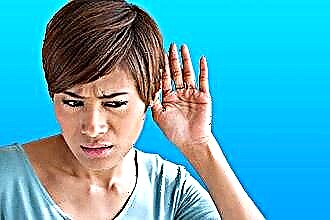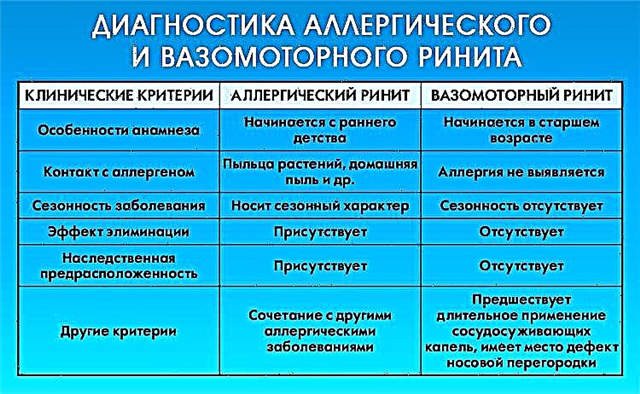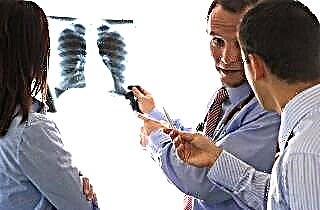Instructions for use of the drug
In this article, we will analyze the official recommendations from the manufacturer on the use of this medication, learn a little more about the peculiarities of the relationship between Aspirin and the human body.
Indications: what does the medicine help from?
 Acetylsalicylic acid is used to improve the patient's well-being in the following pathological conditions:
Acetylsalicylic acid is used to improve the patient's well-being in the following pathological conditions:
- hyperthermia (an increase in body temperature), which has arisen against the background of an acute viral infection, an inflammatory process in the body;
- severe pain syndrome of various etiologies:
- discomfort in the head area;
- toothache;
- algomenorrhea (discomfort in the lower abdomen during menstruation);
- myalgia (muscle pain);
- arthralgia (pain syndrome localized in the joints);
- lumbodynia (severe discomfort in the lumbar region);
- back pain;
- migraine (as a drug for long-term prophylaxis);
- dysfunction of the cardiovascular system:
- as a treatment and prevention of unstable angina pectoris and myocardial infarction;
- with the threat of reinfarction;
- as a prevention of thromboembolic complications after vascular surgery (transdermal coronary angioplasty, coronary artery bypass grafting);
- with varicose veins;
- for the prevention of transient (ischemic attacks) and permanent (strokes) disorders of cerebral circulation;
- rheumatic diseases:
- gouty and psoriatic arthritis;
- rheumatic fever;
- rheumatism;
- ankylosing spondylitis (ankylosing spondylitis);
- Reiter's syndrome.
There is evidence that taking small doses of acetylsalicylic acid (0.325 g per day) for many years reduces the risk of colorectal cancer.
Mechanism of action and properties
 Aspirin belongs to the group of non-steroidal (that is, substances of non-hormonal origin) anti-inflammatory drugs (NSAIDs). Its peculiarity is that it inhibits the activity of cyclooxygenase-1 (a special enzyme that controls the production of prostaglandins - substances that cause the development of inflammation). She is responsible for:
Aspirin belongs to the group of non-steroidal (that is, substances of non-hormonal origin) anti-inflammatory drugs (NSAIDs). Its peculiarity is that it inhibits the activity of cyclooxygenase-1 (a special enzyme that controls the production of prostaglandins - substances that cause the development of inflammation). She is responsible for:
- maintaining the integrity of the mucous membrane (just blocking this function is the cause of the most frequent side effects - ulcers and erosions of the gastrointestinal tract);
- the performance of the hemostatic function by platelets;
- adequate blood circulation in the kidneys.
Anti-inflammatory effect
The inflammatory process in any organ includes several main components, to which the action of acetylsalicylic acid is directed:
- Edema. The effect of NSAIDs on this factor is most noticeable. Due to the absence of prostaglandins, the vascular wall becomes less permeable, the liquid part of the blood cannot continue to exit into the tissues.
- Redness. Prostaglandins stop dilating blood vessels, blood drains from the skin, returning it to its normal color (by the way, advice on the topical use of Aspirin for acne is based on this effect).
- Temperature increase. Due to the action of cyclooxygenase-1, prostaglandins are absent, which were supposed to change the activity of the thermoregulation center in the hypothalamus (they "report" to him about foreign organisms, and his normal reaction to the act of penetration is the declaration of a "state of emergency" - fever). To potentiate the antihyperthermic effect, the drug is used in combination with Analgin.
- Pain. Due to the restoration of the normal density of the walls of blood vessels in the epicenter of inflammation, the pressure drops, the nerve endings cease to be compressed from the outside, the pain recedes.
- Dysfunction of the tissue. Cell destruction is prevented by the following mechanisms:
- inhibition of peroxide (with the help of reactive oxygen species) oxidation (destruction) of lipids (the main components of the cell wall);
- stabilization of lysosomal membranes (walls of containers with enzymes that are used to utilize outdated cells).
Blood thinning effect
Here the main role is again assigned to cyclooxygenase-1, but the point of application is now thromboxane. It is an endogenous (produced inside the body) proaggregant (a substance that promotes cell adhesion).
After Aspirin blocks thromboxane, platelets can no longer adhere to their own kind and form blood clots for the rest of their life (7 days). Consequently, the body loses its ability to seal small holes, and at the slightest injury (skin or gastric mucosa, it does not matter), blood begins to ooze uncontrollably.
Although the coagulation mechanism (hemocoagulation with the help of complex systems of proteins and enzymes) of coagulation still works, thanks to Aspirin, blood thinning occurs and the likelihood of spontaneous thrombus formation decreases.
Forms of release and doses
 Acetylsalicylic acid is available in the following dosage forms:
Acetylsalicylic acid is available in the following dosage forms:
- tablets (0.1 g, 0.25 g, 0.3 g, 0.5 g each);
- powder for preparing a suspension (packaged form, mainly included in the combined remedies for colds);
- effervescent tablets.
The effect of Aspirin depends on the amount of the drug taken:
- in small quantities (0.03-0.325 g) - a decrease in platelet aggregation;
- medium dosages (1.5-2.0 g) - analgesic and antipyretic (antipyretic) effect;
- high concentrations (4-6 g) - anti-inflammatory effect;
- effect on uric acid (with an increase in the concentration of which gout attacks develop):
- up to 4 g - a delay in the elimination of this compound from the body;
- 5 g or more - uricosuric effect (increased excretion of uric acid by the kidneys).
Recommended doses
| Categories | Adults | Children |
|---|---|---|
| Non-rheumatic diseases | 0.5 g 3-4 r / d | Up to a year - 10 mg / kg 4 r / d; Older - 10-15 mg / kg 4 r / d |
| Rheumatic diseases | Initial dose: 0.5 g 4 r / d; Daily dose increase rate: 0.25-0.5 g per week | With a body weight of up to 25 kg - 80-100 mg / kg / day; At higher - 60-80 mg / kg / d |
| Single dose | 0.3-1.0 g, repeated administration - after 4-8 hours. | 6 months to 1 year: 0.05-0.1; 1-3 years: 0.1 g; 4-6 years old: 0.2 g; 7-9 years old: 0.3 g. 10 and older: 0.4 g. |
| Maximum daily | 4.0 g | 60 mg / kg body weight (must be divided into 4-6 doses) |
| For the prevention of thrombosis and embolism | 0.1-0.3 g per day, duration of admission from 1-2 months to two years | Usually no readings |
Side effects and contraindications: harm from Aspirin
This drug is a selective inhibitor of cyclooxygenase-1. Its functions are aimed, among other things, at protecting the body. Blocking the action of this enzyme leads to the development of adverse effects.
Side effects when taking acetylsalicylic acid
| Suffering system | Clinical manifestations | Peculiarities |
|---|---|---|
| Gastrointestinal tract | Dyspeptic disorders (digestive disorders), pain in the epigastric (upper abdomen) and abdominal (in the navel) region, ulceration (the formation of erosions and ulcerative lesions of the mucous membrane of different parts of the stomach and intestines), heartburn, nausea and vomiting | The degree of risk directly depends on the dose of the drug taken by the patient. Enteric dosage forms affect the digestive system less. Some patients adapt to gastrotoxicity (by improving blood supply and mucosal regeneration) |
| Signs of bleeding: bloody vomiting, tarry (seemingly black and unformed, exudes a stench) stool. Very rarely, due to prolonged unnoticed bleeding, iron deficiency anemia develops | ||
| central nervous system | Dizziness and tinnitus | Often occurs in case of overdose |
| Hemostasis | Increased risk of bleeding at different locations | Recently healed wounds are especially dangerous. |
| Allergic reactions | Urticaria (rash on the skin and mucous membranes), anaphylactic conditions (acute, life-threatening manifestations of altered reactivity of the body), spasm of small bronchi, angioedema (thickening of the skin and subcutaneous adipose tissue, its location in the larynx is especially dangerous - can lead to death from choking) | There is an “aspirin triad”: sinus polyposis, bronchial asthma (BA) and absolute aspirin intolerance. Therefore, for the prevention of severe allergic complications, Acetylsalicylic acid is not prescribed for children with BA. |
| Reye's syndrome | Severe encephalopathy and cerebral edema, the manifestation of signs of liver damage in the biochemical analysis of blood (high levels of cholesterol and enzymes, with the integrity of the hepatocytes inside). The risk of death is 80% | It develops with the appointment of Acetylsalicylic acid against the background of a viral infection. To prevent this condition, Aspirin is not recommended for children under 12 years old. |
Newer drugs affect cyclooxygenase-2. This enzyme is responsible only for the activity of the inflammatory process, and its inhibition is not accompanied by undesirable effects.
From the possible side effects, contraindications to admission logically follow:
- history of allergic reactions to acetylsalicylic acid or other NSAIDs;
- aspirin asthma;
- acute ulcer of the gastrointestinal tract of any localization;
- hemorrhagic diathesis;
- insufficient degree of functioning of vital organs:
- hearts;
- liver;
- kidney;
- 7,8,9 months of pregnancy;
- admission against the background of methotrexate therapy.
How to take it right?
 You cannot use Aspirin for more than 3-5 days without consulting a doctor.
You cannot use Aspirin for more than 3-5 days without consulting a doctor.
To reduce the risk of complications, start with the lowest effective dosage. The tablets must be swallowed whole with a little water.
While taking Aspirin, it is desirable to protect the mucous membrane of the gastrointestinal tract from damage. For example, you can use a synthetic analogue of the prostaglandin Misoprostol, which will affect all parts of the digestive system.
To protect the stomach, proton pump inhibitors (drugs to reduce the acidity of its contents) are used, such as Omeprazole or Pantoprazole. For the duodenal mucosa, both they and H2-histamine blockers (Famotidine, Ranitidine) are suitable. However, such a suppression of secretory activity can provoke the appearance of symptoms of hypoacid gastritis.
There are features of the interaction of Aspirin with other groups of drugs that you need to know:
- It can be combined with antibiotics, but it is better to do this under the supervision of a doctor. The fact is that both he and some antibacterial drugs have a toxic effect on the liver. To avoid the summation of the effects and disastrous consequences, it is better to entrust the selection of the treatment regimen to a specialist.
- Concomitant use with Paracetamol increases the risk of allergic reactions and increases the burden on the liver. The difference between them is that Aspirin has anti-inflammatory, antipyretic and analgesic effects, while Paracetamol has only analgesic and antipyretic effects.
- Interaction with Ibuprofen leads to reversible inhibition of platelet aggregation ability.
- If alcohol is taken together with Acetylsalicylic acid, the mucous membrane of the stomach and duodenum is more likely to be damaged, and the bleeding time from newly formed erosions will significantly last. But with a hangover, the drug will perfectly relieve swelling and headache.
- In the presence of hypertension, it should be remembered that Aspirin weakens the effect of antihypertensive drugs. It has no direct effect on blood pressure.
- The simultaneous use of anticoagulants significantly increases the risk of developing hemorrhagic complications (bleeding).
Overdose symptoms
The clinical picture manifests itself with a prolonged excess of Aspirin in the body (for example, when using this drug in a dose of more than 100 mg / kg for at least 2 days in a row), or with a one-time significant excess of the recommended dose.
A mild degree of poisoning is manifested by a specific symptom complex, which is called "salicylism". It includes:
 hearing impairment (usually tinnitus, mild hearing impairment);
hearing impairment (usually tinnitus, mild hearing impairment);- stun condition;
- headache;
- deterioration of vision;
- nausea and even vomiting (in rare cases).
Signs of more severe poisoning:
- shortness of breath (occurs due to the toxic effect of the drug on the respiratory center located in the medulla oblongata);
- acid-base imbalance: respiratory alkalosis (due to the fact that a person exhales too much carbon dioxide, the blood becomes alkalized), and then metabolic acidosis (accumulation of under-oxidized metabolic products in tissues);
- polyuria (an increase in the amount of urine excreted);
- feverish condition;
- dehydration of the body;
- an increase in myocardial oxygen consumption, which can provoke:
- the occurrence of heart failure;
- pulmonary edema;
- neurological symptoms (especially in young and preschool children).
Taking Aspirin at a dose of 150-250 mg / kg will cause moderate intoxication, 300-500 mg / kg - severe. Exceeding the concentration of 0.5 g of active ingredient per kg of body weight can be fatal.
If symptoms of acetylsalicylic acid intoxication appear, the following must be done:
 rinse the stomach (give 250-300 ml of warm water to drink, and then induce a gag reflex several times in a row, or use a probe);
rinse the stomach (give 250-300 ml of warm water to drink, and then induce a gag reflex several times in a row, or use a probe);- after receiving clean water from the stomach, give the victim up to 15 g of activated carbon;
- give a lot of drink (up to 50-100 ml / kg per day);
with significant intoxication, the following can be used:
- intravenous (iv) infusion of isotonic solutions (0.9% sodium chloride and 10% glucose);
- with acidosis - intravenous infusion of a weak solution of soda;
- the introduction of potassium chloride;
- hemosorption;
- hemodialysis (to cleanse the blood of a toxic substance outside the body).
There is no specific antidote for Aspirin poisoning, so standard detoxification agents are used.
Analogues and substitutes
Domestic analogues of Acetylsalicylic acid: Aspikor, Cardiasc.
Foreign analogues:
- Aspirin Cardio (Germany);
- Upsarin oops (France);
- Thrombo ASS (Austria);
- Trombopol (Poland).
You can replace the drug with agents with a similar mechanism of action: Indomethacin, Ketoprofen, Piroxicam, Sulindac.
Conclusions
Aspirin, ascorbic acid and drinking plenty of fluids can cure the flu - this has been proven by many in practice. It is worth remembering that this medication only removes signs of the inflammatory process: pain, fever, edema. Cold symptoms such as cough and nasal congestion cannot be removed.
The physicochemical properties of this drug can relieve excruciating pains provoked by more complex chronic diseases. Cheap Aspirin has improved the quality of life of more than one generation of rheumatic patients and prolonged the age of patients with an increased risk of cardiovascular events.

 hearing impairment (usually tinnitus, mild hearing impairment);
hearing impairment (usually tinnitus, mild hearing impairment); rinse the stomach (give 250-300 ml of warm water to drink, and then induce a gag reflex several times in a row, or use a probe);
rinse the stomach (give 250-300 ml of warm water to drink, and then induce a gag reflex several times in a row, or use a probe);

